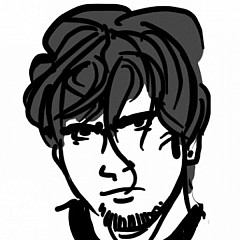Boogie Chillen

Songfacts®:
- John Lee Hooker grew up on a plantation in Mississippi and eventually made his way to Detroit, bypassing the blues hotbed of Chicago.
In 1948, Hooker showed up at the office of a Detroit record store/label owner named Bernard Besman, and presented him with a demo. Besman provided the studio and produced this song for Hooker. They worked together for the next four years, recording many of Hooker's songs, but "Boogie Chillen" was the big hit. The song went to the top of what was then known as the "race" charts, and sold over a million copies after Besman leased the rights to distribute the song to Modern Records. When the song took off, Hooker still had his day job working as a janitor in a Chrysler factory. - Hooker is the only person performing on the song. The only sounds are his voice, guitar, and stomping feet. The tapping sounds came from bottle caps attached to the soles of his shoes.
- "Chillen" is Southern slang for "Children." The song is known by a variety of titles, including "Boogie Chillun" and "Boogie Children."
- When Hooker sings about going to Henry's Swing Club on Hastings Street, he's referring to a real club in the Black Bottom section of Detroit. The area, which is where the Black Bottom dance got its name, was home to various Blues clubs, speakeasies, pool halls and other places of ill repute. Before Hooker arrived, musicians like Maceo Merriweather and Beulah Wallace performed there along with many traveling musicians. Hastings Street was wiped out in 1957 when the highway I-75 was built through it.
- Hooker recorded two more versions of this song, including a remake in 1970 with the band Canned Heat. It was included on an album called Hooker 'n' Heat
-
- ZZ Top reworked this into their 1973 hit "La Grange." In 1992, Bernard Besman, who was Hooker's producer and controlled the copyright to "Boogie Chillen," sued ZZ Top, but a court eventually ruled that Hooker's song was in the public domain.
- Hooker died in 2001 at age 83.
- In the book Hound Dog: The Leiber & Stoller Autobiography, Jerry Leiber tells of hearing this song for the first time. He was working at a record store called Norty's circa 1950 while still in high school. Lester Sill, a sales manager for Modern Records, came into the store and started playing demos for Leiber, mistaking him for the store owner. Leiber loved the music because it reminded him of Hunter Hancock's radio show. He says of the song, "Suddenly the epiphany re-exploded, expanded, and knocked me on my ass." This experience re-affirmed his ambition to someday write songs. In the ensuing years, Lester Sill became Leiber and Stoller's mentor as they entered the music business.
- This was the first song Buddy Guy learned how to play on guitar. Growing up in Lettsworth, Louisiana in a small house with no electricity or running water, Guy heard this song when a family friend, Henry "Coot" Smith, would come over and play it on his guitar. Guy would play what he could of the song on homemade instruments, and when he turned 13, his dad bought Coot's guitar for Buddy, and he was soon playing "Boogie Chillen" on the instrument.
Comments: 7
- Ceri James from London UkThanks Bill for the history lesson about the ZZ Top court case. I find it fascinating. I didn't think you could be successfully sued for a riff. I only thought it applied to melody. Speaking as a guitrist though the riffs are not identical. Obviously the feel for La Grange is derived from Boogie Chillin' - I would agree on that level but blues riffs are often generic and I'm not sure whether they should be subject to law suits unless identical. I'm glad though that many of the original blues artists won some of these cases and were compensated cos they were badly ripped off at various points of their careers. The industry at that time was biased and probably racist in many respects. Led Zep were sued quite a few times. However, I still enjoy the music and I find it's all connected to the same progression
- Kevin from Miami I am so grateful to be a part of this blues community. This is the first song that brought me to this website. I learned a tremendous amount. I am originally from Chicago, and I thought Hastings Street reference in the song was in Chicago.
- Bill from Los Angeles, Ca"Boogie Chillen" was, indeed, the subject of a lawsuit involving ZZ Top's "La Grange." The lawsuit was known as La Cienega v. ZZ Top. Here's the background: Hooker first recorded "Boogie Chillen," in 1948. He did it again in 1950, and yet a third time in 1970 with Canned Heat. Hooker and his partner Bernard Besman, formed the publishing company La Cienega Music, and they registered each of the three versions with the U.S. Copyright Office.
ZZ Top released "La Grange" in 1973. The way I understand it, Hooker told Besman about "La Grange" somewhere around 1990. One big mystery that remains is how he managed not to hear the song for nearly 20 years or why he waited so long to go to court over the matter. Nonetheless, a lawsuit ensued. They filed in 1991 in the Central District Court of California. It looked like a straightforward copyright infringement suit. "La Grange" was too similar to "Boogie Chillen" and Hooker and Bessman were owed royalties. However, the original case and subsequent hearings before the California Ninth Circuit Court of Appeals ended up not even dealing with the issue of whether "La Grange" was derived from "Boogie Chillen" (which it obviously was). But rather whether "Boogie Chillen" had already fallen into the public domain when ZZ Top did their deriving. All of that hinged on the failure by Congress in 1909 to define what exactly constituted 'publication' of a song. And, perhaps more importantly, Besman's failure to renew the song's copyright for a second 28 years (which he could have done) thus making the whole thing a moot point.
According to All Music Guide, there are 138 versions of "Boogie Chillen" - but that's only the number of songs that used the original title. There's no shortage of bands that took the basic riff, added some lyrics, and called it their own. For example, Canned Heat's "Woodstock Boogie" and their "Fried Hockey Boogie." Both are essentially "Boogie Chillen." Then there's the second part of Foghat's "Chateau LaFitte Boogie" where they break into Hooker's riff like they owned it. Back to the lawsuit with ZZ Top... when John Lee Hooker's business partner, Bernard Besman, sued ZZ Top claiming "La Grange" violated their copyright. As a result of the lawsuit, Congress passed several amendments to the Copyright Act of 1909 which effectively overturned the La Cienega decision (which had been in ZZ Top's favor) after which Hooker and Besman settled for an undisclosed amount. A happy ending for intellectual property owners everywhere.
One question that remains is why they didn't sue Slim Harpo or a lot of other artists. The Rolling Stones covered Slim Harpo's "Shake Your Hips" for Exile on Main Street and they made it sound even more like Hooker than Harpo had. And there were lots of other songs that might have prompted an attorney to file suit. Among those that more or less derive from Hooker's original composition, Junior Parker did one called "Feelin' Good." And there was Sammy Lewis's "Feel So Worried" and who could forget Slim Green and the Cats from Fresno with the "Old Folks Boogie." (Which is not the same as the Little Feat song.) Hooker's boogie riff also shows up in Norman Greenbaum's "Spirit In the Sky" and Zeppelin worked it into their "Whole Lotta Love" medley in most of their live shows from 1970 to 73. And the list goes on from Hastings Street to Henry's Swing Club to The Way Back Studios. (This is from my commentary for my Sirius XM show, called Fitzhugh's All Hand Mixed Vinyl on Deep Tracks.) See the set list for the show at my website www.billfitzhugh.com - Brian from Mandeville, LaActually, "Boogie Chillen'" was part almost every live blues medley that Led Zeppelin did. Initally, the medleys were in "How Many More Times", but they were moved to "Whole Lotta Love" soon after.
- Joshua from Twin Cities, MnNorman Greenbaum's "Spirit In The Sky" features a slightly altered version of this song's riff.
- Robert from Santa Barbara, CaIt was also a hit record in 1948. A few years later, he released Boogie Chillen #2, which rocks harder.
- David from Chatham, CanadaThis song is part of the Whole Lotta Love medley on How The West was One
More Songfacts:

I Kissed a GirlKaty Perry
Katy Perry's breakout hit "I Kissed A Girl" was surprising to those familiar with her past: her parents were pastors and she started off singing Christian music.
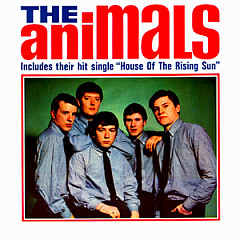
The House Of The Rising SunThe Animals
"The House Of The Rising Sun" is a traditional folk song, either about a brothel or a prison.

Love ShackThe B-52s
Rupaul was in the video for "Love Shack" by the B-52's. He had a solo hit with "Supermodel" a few years later.
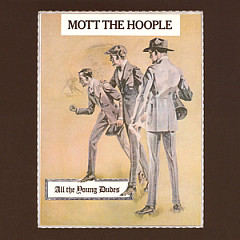
All The Young DudesMott the Hoople
All The Young Dudes "carry the news" because it was intended for a David Bowie concept album where Ziggy Stardust spreads the news in a world with electricity.
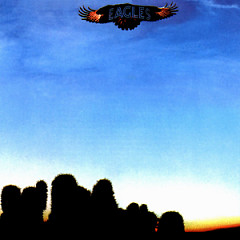
Take It EasyEagles
The Eagles' first single, "Take It Easy," was written by Jackson Browne, who was living in the apartment below Glenn Frey when he wrote it.
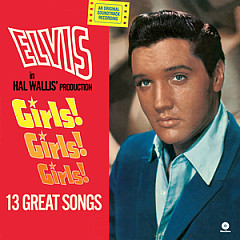
Return To SenderElvis Presley
When the Elvis stamps came out in 1993, lots of folks used them to mail letters with bad addresses so they would be Returned To Sender.
Editor's Picks
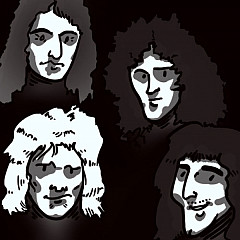
QueenFact or Fiction
Scaramouch, a hoople and a superhero soundtrack - see if you can spot the real Queen stories.
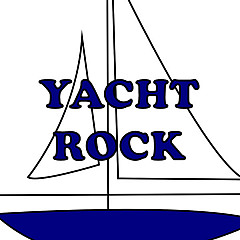
Yacht Rock!Song Writing
A scholarly analysis of yacht rock favorites ("Steal Away," "Baker Street"...) with a member of the leading YR cover band.
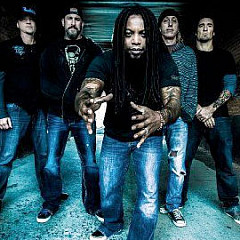
Lajon Witherspoon of SevendustSongwriter Interviews
The Sevendust frontman talks about the group's songwriting process, and how trips to the Murder Bar helped forge their latest album.
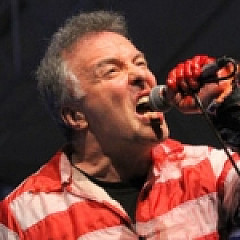
Jello BiafraSongwriter Interviews
The former Dead Kennedys frontman on the past, present and future of the band, what music makes us "pliant and stupid," and what he learned from Alice Cooper.
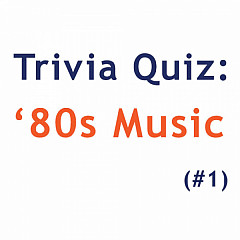
80s Music Quiz 1Music Quiz
MTV, a popular TV theme song and Madonna all show up in this '80s music quiz.


